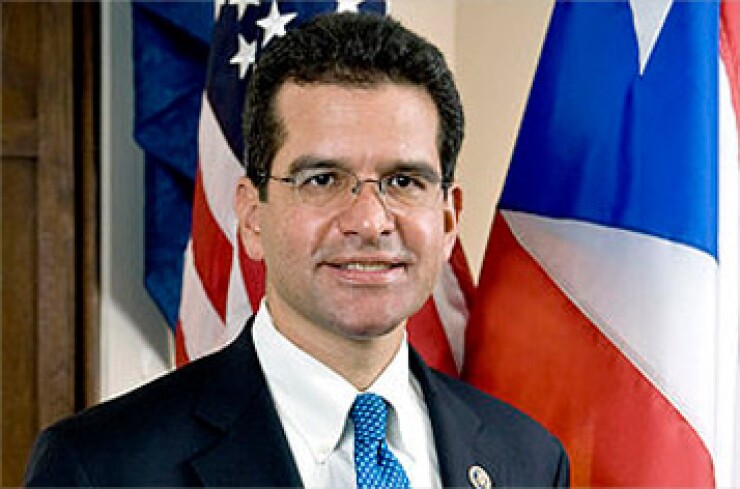
WASHINGTON - Melba Acosta, president of the Government Development Bank for Puerto Rico, will testify before the Senate Finance Committee's hearing next Tuesday on the financial troubles of the territory and its borrowing authorities, which have $71 billion of debt outstanding.
Acosta will be joined by Resident Commissioner Pedro Pierluisi, a Democrat and Puerto Rico's nonvoting member of Congress; Douglas Holtz-Eakin, president of the Washington-based American Action Forum; and Sergio Marxuach, public policy director for the San Juan-based Center for a New Economy, the committee announced on Friday.
Acosta is a key player in Puerto Rico's financial discussions because she oversees the commonwealth's debt and is the territory's chief financial officer. She also is one of five members of the government working group that drafted a proposed financial plan for the island released earlier this month. That plan calls for the creation of a financial control board, but Acosta testified in February before a House Judiciary Committee panel that Congress should extend bankruptcy protection to the territory's authorities.
Pierluisi also has been a consistent advocate for extending Chapter 9 bankruptcy protections to the troubled commonwealth's authorities and introduced a bill in the House in February to achieve that goal. The bill has since remained immobile in the House Judiciary Committee.
Holtz-Eakin's group characterizes itself as an organization grounded in center-right values that focuses on educating the public about complex policy choices. Gordon Gray, the organization's director of fiscal policy, wrote a piece for the American Action Forum arguing that a Chapter 9 solution alone would not address Puerto Rico's structural challenges and would "lead to increased federal spending with taxpayers on the hook." Instead, he said increasing federal Medicaid spending in Puerto Rico and funneling federal funds into its health care system would best help the island.
Marxuach has said the Center for a New Economy would support extending Chapter 9 bankruptcy to the commonwealth as a remedy to "an inexplicable historical oversight," but only with certain caveats. Congress would also need to remove some of Puerto Rico's political disadvantages by exempting the commonwealth from the costly Jones Act that requires U.S. ships to be used for trade between the island and the U.S., as well as equal treatment under U.S. health and tax programs. He also argued Puerto Rico needs to increase tax revenues, encourage workers to move to the formal economy, and develop a five-year fiscal adjustment plan with support from stakeholders on the island.





